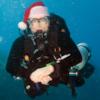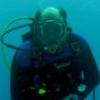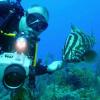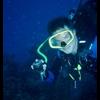Can I just clarify something for the OP, who I assume is a novice when it comes to SLRs? The sensor size isn't the only determinant of image quality, but it is a significant factor. And while you can generally use lenses designed for a FF digital camera (which is the same as a film camera) on camera bodies with cropped sensors, the same is NOT true in reverse. If you go out and buy, say a Canon 40D (an excellent camera) and buy lots of APS-C lenses that will work perfectly on that camera, you will find if you later decide you want the benefits a FF sensor can give you that many/most of those lenses will NOT work on it. The same is true for Nikon, though as only their top model has a FF sensor you're not likely to buy it.
Arguably the sensor size has little/nothing to do with image quality, it's impact on the photographer is focal length/zoom. Full-frame sensors are also more likely to have more pixels, since given the same sensor material/pixel density, a bigger sensor will give you more of them, thus the 5D being 12MP compared to the 20D and 30D's 8MP (20D was out when the 5D was released, and the 30D was released about a year after the 5D). However, once you're up into that general range of megapixels, lens quality is really the determiner of picture quality.
In terms of EF-S lenses (the ones that only fit a Canon APS-C-sensored camera), I prefer the normal EF lenses that will work on either type of camera in general for the reasons you list, but if there's a compelling case for an EF-S lens, I'll get it. Personally, I have 2 EF-S lenses, one is the kit lens that came with the 20D, and the other is Canon's 10-22mm f/3.5-4.5 lens. This is a great lens and relatively cheap (US$700). It has been compared to the Canon L series favorably, and some believe that it didn't become an L lens solely because it is EF-S. Nothing else Canon makes gets me close to that wide with an APS-C sensor, although there are equivalents for full frame lenses that would give them the same width as this lens on an APS-C camera.
Basically, I'd say buy what works best for the pictures you want to take, but if there's an non EF-S lens that's close, buy it. No point locking yourself in (although the only full frame sensor cameras Canon makes currently are the 5D and the 1Ds).
Also, when looking at lenses for land use, I'll add that I'm a big fan of image stabilized (IS) lenses. If you do natural-light handheld shots, it'll effectively give you 2-3 stops, as you'll get good pictures at slower shutter speeds. Only where the blurring is from camera shake, though; subject motion blurring will still bite you and the only answer is a faster shutter speed (with it's corresponding impact to aperture).



















